This is hands down the best caramel cake I’ve ever had! It consists of super moist vanilla brown sugar cake layers, topped with a luscious and deep flavored caramel frosting that isn’t sickly sweet. This is a Southern style caramel cake recipe – a caramel lovers DREAM cake!

Why You’ll Love This Caramel Cake
My number one problem when it comes to caramel cakes, is that they’re usually way too sweet! What I love about this recipe (and what I think you’ll love!) is that the caramel isn’t overly sweet, and doesn’t compromise on caramel flavor AT ALL!
Caramel Frosting
The caramel frosting used for this recipe is the type used in Southern caramel cake recipes, which involves cooking down a combination of butter, sugar and evaporated milk, until you reach a thick, golden brown caramel sauce. You then add in cream to thin it out so you can use it as a frosting.
The process does take a bit of time (the total time on average is about an hour), but TRUST ME it is so worth it. I tried different types of caramel icing when developing this recipe, and this Southern style was by far the winner! It has a complex caramel flavor without being sickly sweet.
Cake Layers
This recipe uses vanilla brown sugar cake layers as the base. It’s a super moist, rich and buttery yellow cake, similar to my vanilla cake recipe, but with even more buttery flavour. The addition of brown sugar gives the cake a subtle caramel flavour (similar to my coffee cake and spice cake recipe) without it being overpowering – which really allows the frosting to shine!
For this recipe I used sour cream to give the cake layers a super tender crumb! You can substitute the sour cream with plain, unsweetened yoghurt or buttermilk if you can’t easily find it.
How to Make Caramel Cake
Caramel Cake Layers
First is the cake batter. Begin by Preheating your oven to 160 °C (320°F) with the fan on and grease or line (with parchment paper) two 8 inch cake pans (I use my homemade cake release). If your oven doesn’t have a fan option, then you will need to increase the baking temperature to 175°C/350°F.
Sift together all purpose flour, cornstarch, baking powder and salt. Using a whisk or fork, mix until well combined. Set aside for now.

In a large mixing bowl combine butter, vegetable oil, white sugar and brown sugar. Using an electric mixer on a medium speed, cream together for 2 minutes until light and creamy.
Add in eggs one by one, mixing well in between each addition (about 10-15 seconds between eggs).

Next add in sour cream and vanilla and mix until well combined. Now set your mixer aside as the remainder of the batter will be finished by hand.
Finish off by adding in half of your premixed flour mixture to your wet ingredients, and gently fold it in with a spatula until just combined. Then add in the milk, and fold it in until just combined. Lastly, add in the remaining dry ingredients and gently fold it into the mixture until just combined. Do not overmix.


Distribute the batter evenly into the two 8 inch cake tins, and bake for 28- 30 minutes or until a toothpick comes out clean.
Once baked, allow the cake layers to cool in the cake tins for about 15-20 minutes, and then turn them out onto a wire rack to completely cool before frosting with the caramel.

Caramel Cake Frosting
Place a large saucepan over a medium heat and add in butter, sugar, evaporated milk and salt. Allow everything to melt together and come to a simmer, stirring continuously. Once simmering, turn the heat down to a low-medium heat.

Allow the caramel to thicken up slowly for about an hour, stirring every few minutes to make sure the caramel isn’t burning. Be sure to check on it more frequently once it starts to thicken up as this is when it is more prone to burning. Once it is thick (see video for visual), and a deep golden brown colour, add in the cream and vanilla. Stir until the caramle is smooth, and then immediately pour it into a heat proof dish.
Allow the caramel to cool for about 25 minutes before frosting the cake. You still want the caramel to be slightly warm and runny when frosting the cake, as it sets up quickly once you come to using it.

Assembly
Once cakes are cooled, level the tops with a serrated knife so that the cake layers are flat.
Place the first cake layer onto your cake stand/serving platter and place a generous amount of the caramel frosting on top and smooth it out with an offset spatula or knife.

Place your next cake layer on top and cover the top and sides with more caramel frosting. Once the caramel starts to set up, you will notice it become shiny. You can run an offset spatula or knife gently on top of the shiny caramel and this will make everything super smooth! Decorate as you wish and enjoy!

Commonly Asked Questions
How do you store caramel cake?
This caramel cake can be left out at room temperature in an airtight container for a few days. After that it should be refrigerated and will last up to a week.
What do I do if my caramel is too thin?
If your caramel frosing is too thin and not setting up when you come to frosting the cake, it most likely just needs time to cool down further and firm up a bit more. Let it cool for another 20 minutes or so and this should do the trick. If it’s still not setting up when frosting the cake layers, then it means that you need to reduce the caramel over a stove top further.
What is my caramel too thick?
If the caramel is too thick, it’s most likely due to the caramel cooling down a bit too much before using it to frost the cake. Remember you still want the caramel to be slightly warm and runny when it comes to frosting the cake. If it’s too thick, simply heat up the caramel slightly, or you can also mix in a little more cream to thin it out.
Why is my caramel very gummy and chewy once set?
If the caramel is very hard to eat, it means the caramel was overheated when the frosting was being made. Be sure to only cook the caramel until it thickens in consistency (see video for visual demonstration), and take it off the heat once the cream is mixed in.

Moist Caramel Cake
IMPORTANT: For accuracy, I would recommend using the gram measurements provided, as those are the exact quantities I use. Cup measurements are given as estimates (based on US cup measurements) to make it easier for those who do not have a scale.
Ingredients
Caramel Cake
- 2 cups (250 g) flour - plain, all purpose
- ¼ cup (30 g) cornstarch
- 2½ tsps baking powder
- ½ tsp salt - omit if using salted butter
- ¾ cup (170 g) unsalted butter - room temperature
- ¼ cup (55 g) unflavoured vegetable oil - I use canola oil
- 1 cup (200 g) white granulated sugar
- ½ cup (100 g) soft light brown sugar
- 3 large eggs - room temperature
- 1 tbsp vanilla extract/essence
- ½ cup (120 g) sour cream - room temperature
- ½ cup (120 g) milk - full fat, room temperature
Caramel Frosting
- ¾ cup (170 g) unsalted butter - room temp
- 1½ cups (300 g) white granulated sugar
- 2 cups (510 g) evaporated milk - 1 and 1/2 12 ounce (340g) cans
- ¼ tsp salt - omit if using salted butter
- ⅓ cup (80 g) cream - room temp, any cream (whipping, heavy cream, etc.) will work
- 1½ tsps vanilla extract/essence
Instructions
Caramel Cake
- Preheat oven to 160 °C (320°F) with the fan on (see note 1 if you don't have a fan function) and grease or line two 8 inch cake tins (I use my homemade cake release).
- Sift together flour, cornstarch, baking powder and salt. Using a whisk or fork, mix until well combined. Set aside for now.
- In a large bowl combine butter, vegetable oil, white sugar and brown sugar. Using an electric mixer (hand or stand mixer are both fine - see note 2), cream together for 2 minutes until light and creamy.
- Add in eggs one by one, mixing well in between each addition (about 10-15 seconds between eggs).
- Next add in sour cream and vanilla and mix until well combined. Now set your mixer aside as the remainder of the batter will be finished by hand.
- Finish off by adding in half of your premixed dry ingredients to your wet mixture, and gently fold it in with a spatula until just combined. Then add in the milk, and fold it in until just combined. Lastly, add in the remaining dry ingredients and gently fold it into the mixture until just combined. Do not overmix (see note 3).
- Distribute the batter evenly into the two 8 inch cake tins, and bake for 28- 30 minutes or until a toothpick comes out clean.
- Once baked, allow the cake layers to cool in the cake tins for about 15-20 minutes, and then turn them out onto a wire rack to completely cool before frosting with the caramel.
Caramel Frosting
- Place a large saucepan over a medium heat and add in butter, sugar, evaporated milk and salt. Allow everything to melt together and come to a simmer, stirring continuously. Once simmering, turn the heat down to a low-medium heat.
- Allow the caramel to thicken up slowly for about an hour, stirring every few minutes to make sure the caramel isn't burning. Be sure to check on it more frequently once it starts to thicken up as this is when it is more prone to burning. Once it is thick (see video for visual), and a deep golden brown colour, add in the cream and vanilla. Stir until the caramle is smooth, and then immediately pour it into a heat proof dish.
- Allow the caramel to cool for about 25 minutes before frosting the cake. You still want the caramel to be slightly warm and runny when frosting the cake, as it sets up quickly once you come to using it (see note 4 if caramel is too thick).
Assembly
- Once cakes are cooled, level the tops with a serrated knife so that the cake layers are flat.
- Place the first cake layer onto your cake stand/serving platter and place a generous amount of the caramel frosting on top and smooth it out with an offset spatula or knife.
- Place your next cake layer on top and cover the top and sides with more caramel frosting (see note 5 if caramel is too thin and not setting up). Once the caramel starts to set up, you will notice it become shiny. You can run an offset spatula or knife gently on top of the shiny caramel and this will make everything super smooth! Decorate as you wish and enjoy!
Video

Notes
Nutrition
Nutritional information are estimates only as they are automatically calculated by a third party application. Actual values may differ based on brands and types of products used.




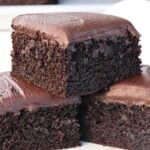



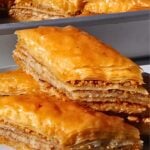





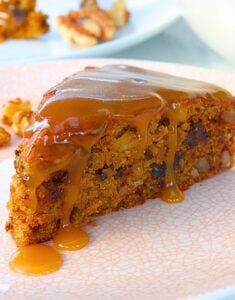
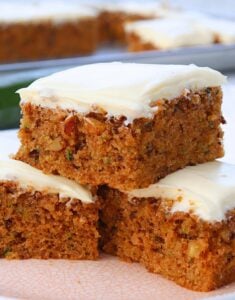
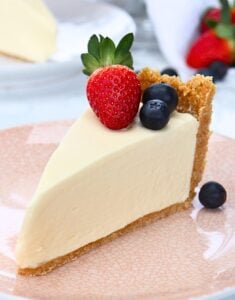


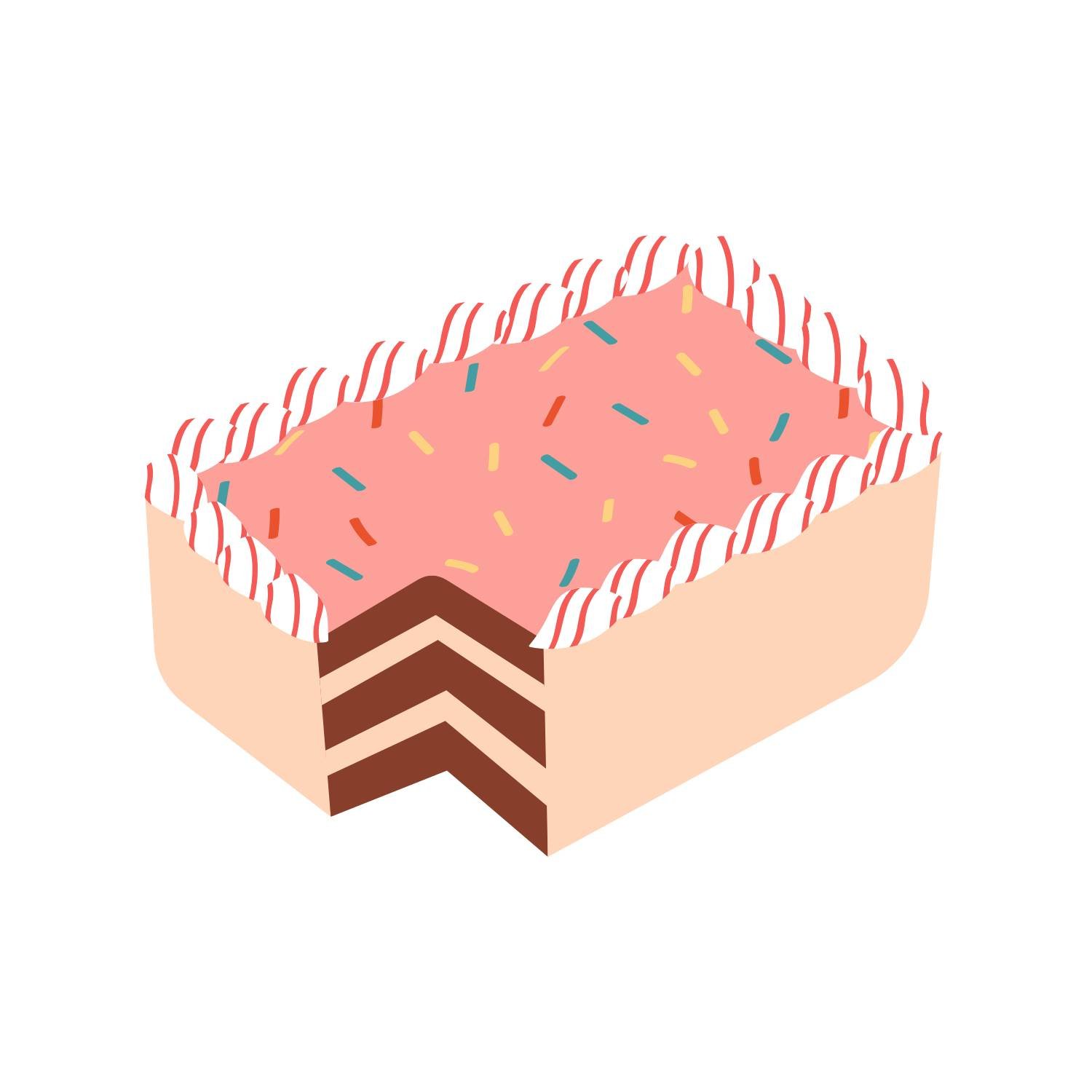

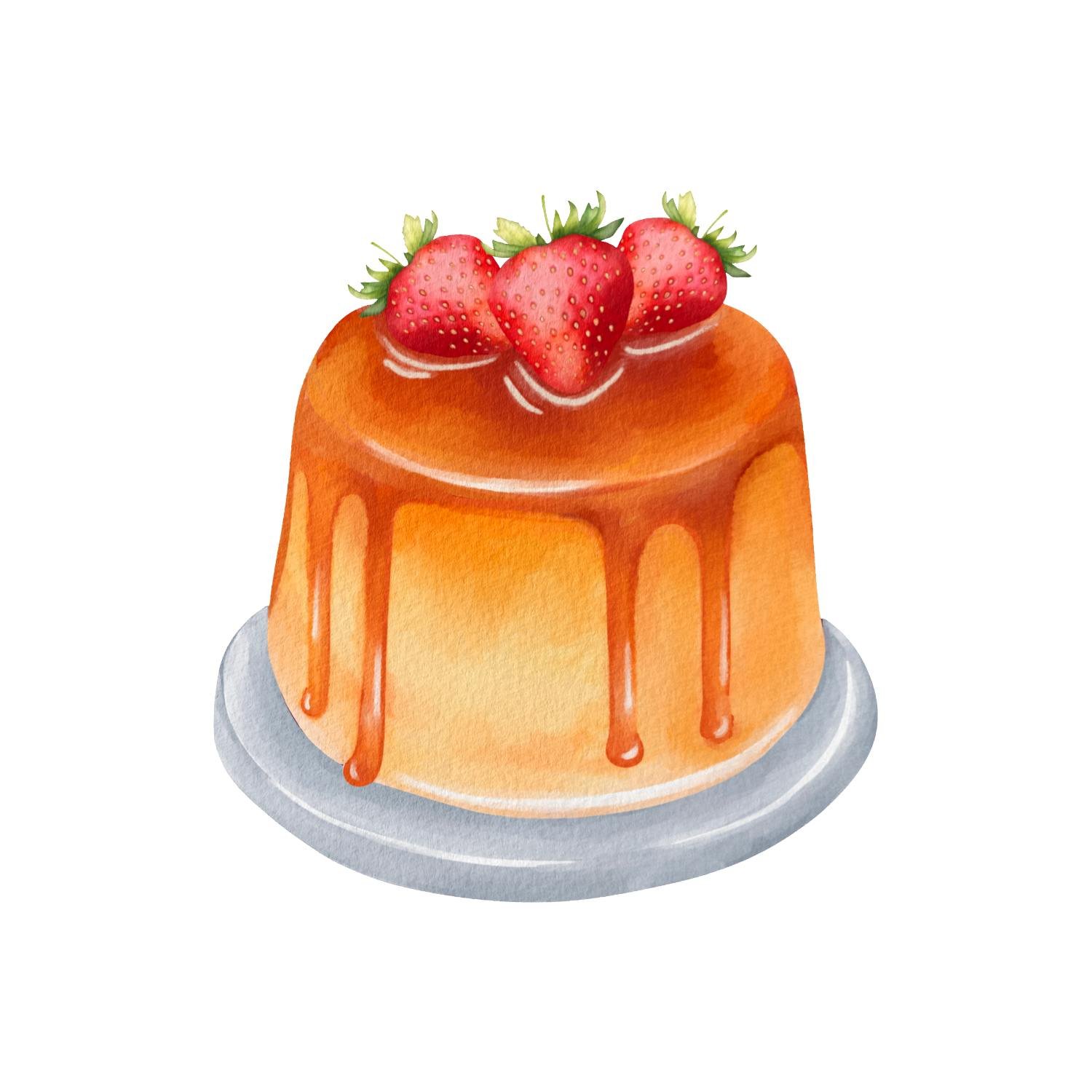
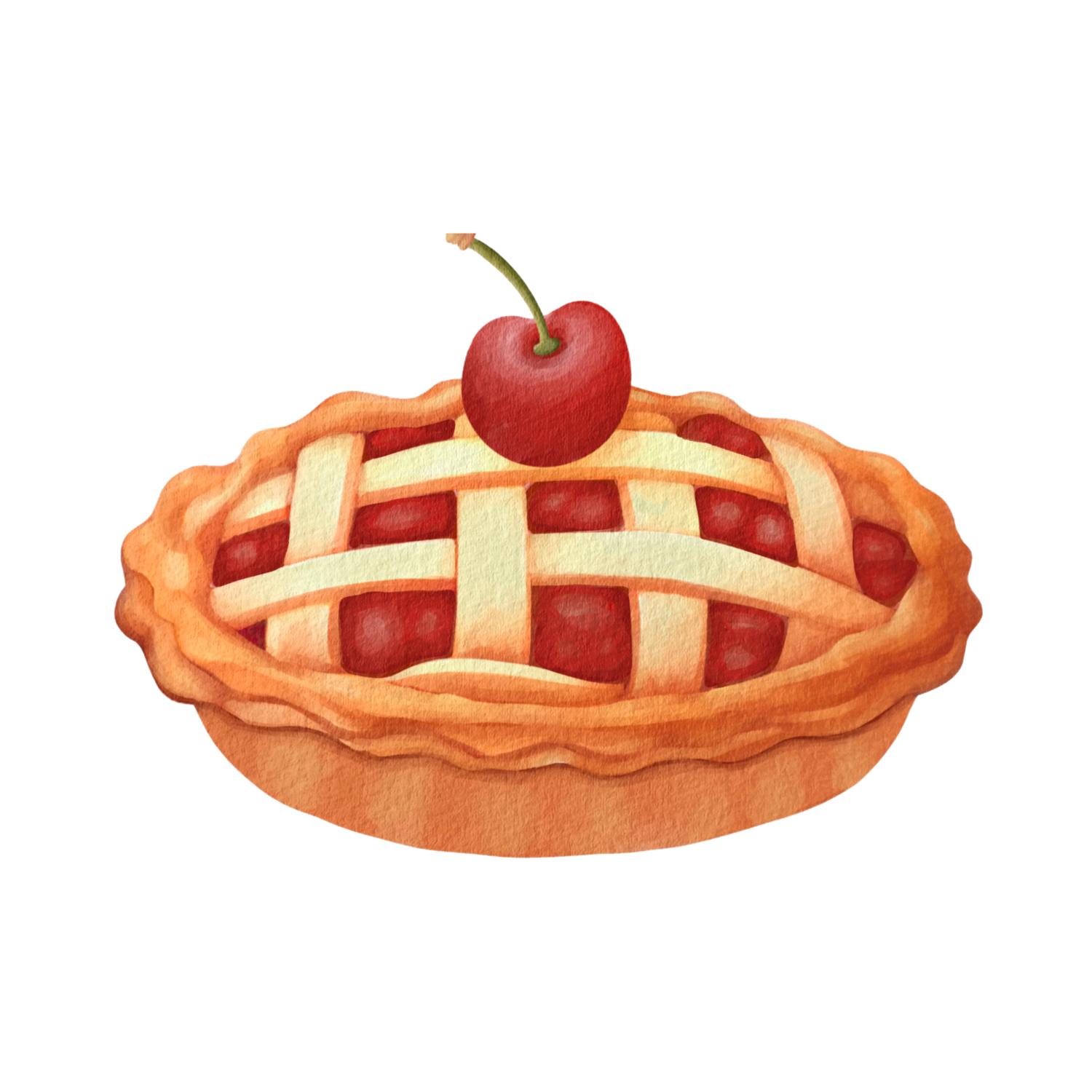
101 Comments
Can u use condensed sweetend milk instead of evaporated milk ; when making the frosting ?
Hi Angela! 🙂
I haven’t tried that myself so I’m not too sure sorry! I imagine the sweetened condensed milk may make the frosting very sweet, so you’ll probably want to reduce some of the sugar in the frosting if you wanted to try it out 🙂
My Carmel is not cooking smoothly at all. It seems the butter is preventing it. It looks more beady. I followed your video to a T. What could be the issue here?
Hi Symone! 🙂
So sorry to hear the caramel is not cooking smoothly. The most likely reason is the heat is too high, causing the sugar to crystallize which can result in little lumps in the caramel. Too high of a heat can also cause the caramel to split. Try with a lower heat and hopefully that will help for next time 🙂
Hi,
If I used Australian cups for the recipe as I dont have American cups would it work out fine?
Hi Charlotte! 🙂
Australian cups are slightly larger than US cups so you’ll just want to make sure you’re using the same cup for all the ingredients. Because there will be slightly more batter overall, you also may want to add a little bit more baking powder and vanilla, though exact quantities I’m not sure sorry! For best results I would recommend using the gram measurements if you can 🙂
Hi Maryam, I have done this recipe on the 2x, 3 times now. The first time all went well, the second and third time I had to do on the same day as my first batch raised so much and over flowed haha but on these last two attempts the cakes are sinking on the middle? They are still delicious, but they get cooked and done, the stick comes out clean, but they still sink!! Please help!
Hi Kristina! 🙂
So sorry to hear the cakes are sinking in the middle – that can be frustrating!
If the first batch overflowed then it may be because your cake tins are too small or not high enough (the tins I use are 8×3 inches). If the cake tins are smaller than 8 inches you’ll just need to pour less batter into the cake tin and reduce the cook time and this should also prevent them from sinking (too much batter in one cake tin can cause sinking) 🙂
Sinking can also happen if the cakes are checked too early and too much cold air rushes into the oven which causes the middle to collapse. I would recommend checking the cakes only when they’re almost done 🙂
For more tips check out this blog post: https://cakesbymk.com/recipe/why-did-my-cake-sink-in-the-middle/
Hope that helps for next time Kristina! 🙂
Hello could I use this recipe for the 13*9 pan instead of the round pans
Hi Dee! 🙂
Yes 1x this recipe should fit well in a 9×13 inch pan – you may just need to reduce the cook time as the cake will likely bake up a bit faster than the stated cook time 🙂
Hope you enjoy the recipe!
Hi
I had a question regarding oven heating. I have a fan in the oven and a heating element on the top. Should I use both top and bottom heat simultaneously? When I do the bottom layer becomes to over baked and the top becomes crispy. How do you think I can prevent that from happening?
Secondly, if i want to make a one layer cake should i half the recipe?
Thirdly, what can i substitute the sour cream with? is it necessary?
Sorry for so many question. Looking forward to hearing from you.
Hi Saman! 🙂
With the oven, if you’re finding that having both elements on is causing the cake to overbake, then I would either lower the temperature (be sure to reduce the temperature by 20degrees celcius if the recipe you’re using uses a conventional oven with no fan), or turn the top element off. If you find the top is still overbrowning, you can also move your oven rack one step lower so that the cake isn’t too high in the oven.
Yes, for a one layer 8 inch can you want to half the recipe 🙂
The sour cream adds extra moisture and creaminess to the batter. Usually full fat yoghurt is a decent substitute for sour cream so that may work, though I haven’t tried it myself in this recipe so can’t say 100% sorry!
Don’t apologize at all! Hope the answers above helped 🙂
Hiii! I absolutely loved the cake, but is it possible to make the Carmel frosting without evaporated milk and heavy cream?
Hi Gabrielle 🙂
So glad you loved the recipe!
Unfortunately the evaporated milk and heavy cream are an important part of the caramel sorry 🙁
Regular milk may work in replacement of the evaporated milk, but this will affect the taste and maybe the texture slightly too. So sorry I couldn’t be of more help!
Hello, I’m wondering if this recipe needs to be altered for 9″ round pans?
Hi Brooke! 🙂
If you want thicker cake layers (like in the original recipe), then you may want to make 1.5x the recipe for 9 inch pans. Alternatively, you can use 1x the recipe but the cake layers will be slightly thinner so you’ll just need to reduce the cook time.
Hope that helps and hope you enjoy the recipe 😀
Hi Maryam,
I want to make your caramel cake for Thanksgivings in a 9 in round pan. Just want to know will this recipe come out 2 in high for a double cake. If not do I need to add any extra ingredients to the recipe above. The picture looks good
Hi Patricia!
So sorry for the delay in reply here. I hope you had a great thanksgiving 🙂
Unfortunately one 9 inch round pan may be too small and I usually advise against putting too much batter in one cake tin otherwise the cakes may not rise well. You could half the recipe which will make one slightly thinner 9 inch cake, or distribute 1x the recipe between two 9 inch pans if you have two pans – you’ll just need to reduce the cook time slightly 🙂
Hope that helps and hope you enjoyed the recipe if you decided to try it out for thanksgiving 🙂